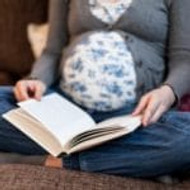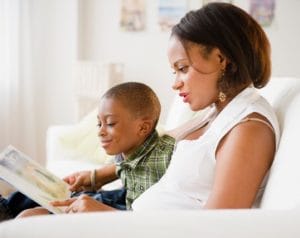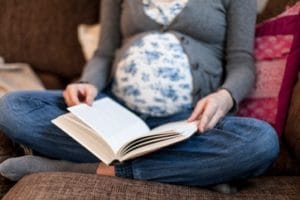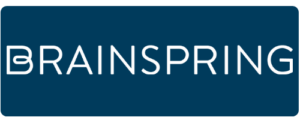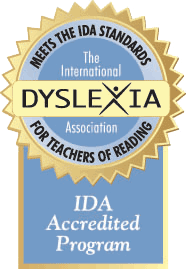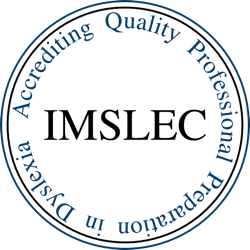When Does Literacy Begin?
Posted by Tammi Brandon on 29th Jul 2019
Many people believe that childhood literacy begins around the time a child enters school, but preparation for literacy actually begins prior to the start of elementary school. Some might think then that literacy skills begin in preschool, but initial literacy skills begin even before that. So, when, exactly, does literacy begin?
Literacy begins in utero. Long before a child is born, she can hear the sound of her mother’s voice. She can hear the rhythm and flow of her native language, and although she may not understand the words being said, a baby in utero is beginning to develop literacy. She is learning to distinguish different sounds, the flow of words, the rhythm of language, and the tone with which it is spoken.
Promoting Literacy
Developing literacy is a complex process; a process that begins, surprisingly, long before a child is ready to read, or even speak, her first words. Pregnant mothers can help promote literacy by reading aloud, speaking often, and even singing to their babies throughout their pregnancy. Of course, continuing these things after a baby is born is equally important.
From the moment a child is born, she is exposed to things that are critical for language and literacy development. Studies have shown that infants and toddlers who are read to on a regular basis understand many more words than their peers that have not been read to. This additional vocabulary can help promote future success in school.
Developmental Stages
From birth to around six months, babies are developing their vision. Books with bright and contrasting colors are perfect for this age. Snuggling in a caregiver’s lap and looking at pictures fosters a sense of comfort, a love of books, and enhances visual development. Although babies at this age do not understand what is being read to them, they are developing a sense of how language works.
As a baby moves into the seven to twelve-month age group, she becomes increasingly mobile and begins to explore her surroundings with her hands and mouth. Sturdy board books are developmentally appropriate for babies who may crawl over them, roughly turn pages, drop the books, or teethe on them. At this stage of development, parents and caregivers may find that they cannot read an entire book to baby. She is too busy exploring! It is perfectly acceptable to read only part of a book. When reading, be sure to point to pictures and say their names. “Look, Hailey! There’s a puppy,” is a wonderful way to help a baby develop an awareness of word meaning.
Once a baby reaches her first birthday, she is ready to interact with books in a whole new way. Now when you read to her, invite her to participate. “Where’s the kitten, Hailey?” or “What does the piggy say?” are fun ways to encourage interactions with books. Talking, singing, and reading to babies before their first birthday is crucial to success in literacy- by the time a baby celebrates her first birthday, she has already learned all the sounds of her native language! Some parents notice that even before a baby turns one, she has learned some of the mechanics of reading such as how to turn a page, pointing to a corresponding picture when a word is read, or showing preference for a certain book or page within a book. Reading everyday shows baby that reading is fun. Be sure to include books in her toy box so she can pull them out at will.
Building a Foundation
Babies will not understand everything you say to them or read to them, but reading books introduces learning about colors, animals, letters, numbers, and other topics. It helps baby to build listening skills, develop memory, stimulates imagination, provides additional verbal interaction between baby and caregiver, and allows baby to learn new vocabulary. The more baby is read to, the more words she will be exposed to. The more baby is exposed to early on, the greater her chance for academic success.
A parent’s role is critical to a child’s literacy success rate. Elements of literacy can be built into a child’s everyday life. Singing songs with rhyming words, reading signs in the grocery store, reading aloud the directions found on a muffin mix or microwavable dinner, reading the same story over and over again, singing the alphabet song, and pointing out letters in the environment all provide valuable learning opportunities for a young child.
Immersion in a literature-rich environment prepare baby for greater school success. Studies have shown that children from language-poor families often struggle in school. The more limited a child’s exposure to language and literature activities, the more likely she is to have difficulties with pre-reading and reading skills.
Read. Read. Read. From the moment your child is conceived until she will no longer allow you to read with and to her, read. You will give her the gift of literacy, and that is something that will serve her entire life. It is never too early to begin preparing a child for reading success.
Tammi Brandon, M.Ed., CDP
Tammi Brandon is a Master Instructor and Education Consultant with Brainspring Educator Academy.
References:
Balmain, Melissa. “Age-by-Age Guide to Reading to your Baby.” http://www.parents.com/baby/development/intellectual/age-by-age-guide-to-reading-to-your-baby/. 13 Feb 2017.
Raising Children Network. “Developing Literacy.” http://raisingchildren.net.au/articles/developing_literacy.html. 13 Feb 2017.
“Reading Books to Babies.” http://kidshealth.org/en/parents/reading-babies.html#. 13 Feb 2017.
Riley-Ayers, Shannon and Dorothy Strickland. “Early Literacy: Policy and Practice in the Preschool Years.” http://www.readingrockets.org/article/early-literacy-policy-and-practice-preschool-years. 13 Feb. 2017.
